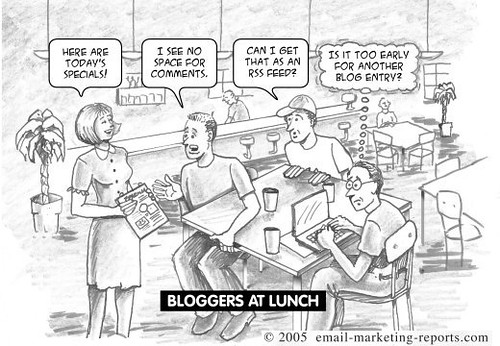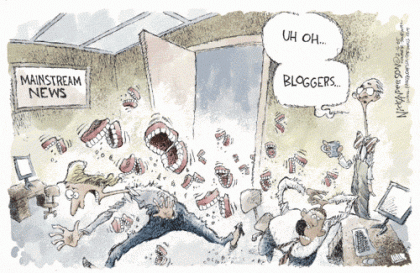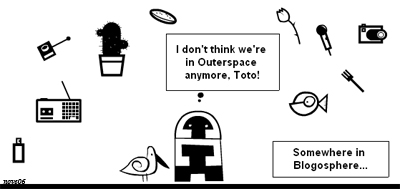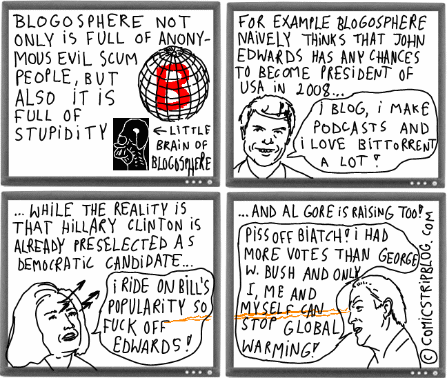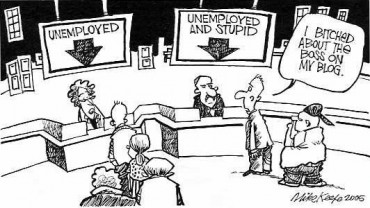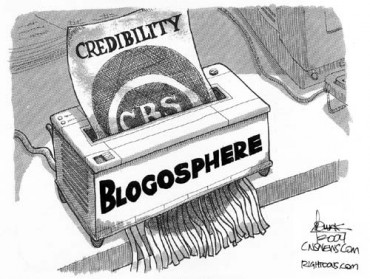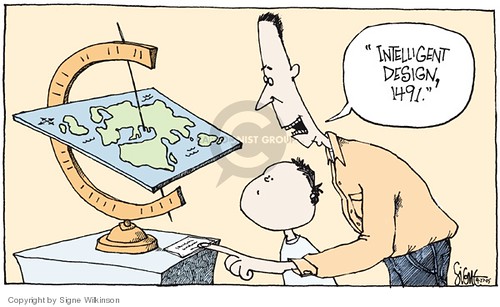Weblogs must be “studied as sites for identity construction and self-invention” (Paasonen, 2002: 22).
Rak (2005) identified the blogosphere as “a potential site for thinking about queer identity, electronic identity, and liberal discourses of identity based on individual agency, unity, and the primacy of individual experiences”.
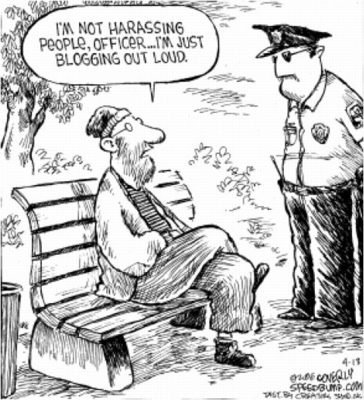
Creation of a sense of
collective and
personal identity in the blogosphere.
Connectivity among like-minded individuals in the blogosphere allows an individual to not only “break free of an antiquated vision of one identity” (Vasta, 2005), but “develop a
new collective identity based on a
‘we’ community" (Vasta, 2005), effectively constructing a collective identity and a
sense of belonging to a community.
The blogosphere presents also a unique opportunity for an individual to reinvent or reinforce their
personal identity via the
“unruly multiplicity” of the social identity in blogospheres (Paasonen, 2002: 22).
A number of weblogs deceivingly comprise the taking up of a fictitious persona, and/or the chronicling of fictitious events and experiences (Vasta, 2005).
Each individual can challenge, change and create
identity categories through the
power of virtual identities or persona in the
blogosphere. Consequently, the
complexity between the blogosphere, identity and power underscores
caution against assuming homogeneity in the blogosphere.






